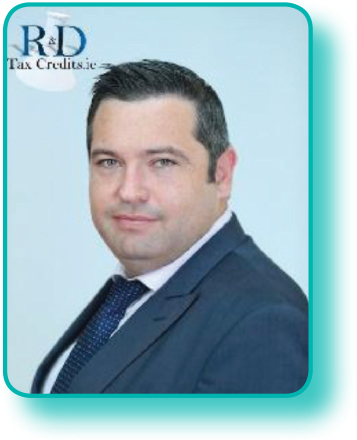My Tax Journey: Cathal Noone
Cathal Noone is a Chartered Accountant and an electronic engineer. Cathal recently started his own practice, randdtaxcredits.ie where he offers tax technology solutions in the Research and Development space. Cathal previously worked as a Director in PwC’s R&D tax credit group. In this My Tax Journey feature Cathal talks us through his career and the challenges of starting his practice during the coronavirus pandemic, as well as all the goings on in the R&D space in Ireland.
How did your unique engineering and accounting hybrid qualifications bring you into the R&D tax credit space?
Completely by chance. I had trained in PwC in audit, left there and was working as a financial systems accountant, when out of the blue I got a call from PwC to say they were looking for someone with my unique background to help build out the technical side of their R&D tax credit team. Being able to comfortably speak to the R&D teams, the financial teams and link the two elements of a claim together is the key for producing strong R&D claims.
What has it been like for you starting up your own practice during this time?
Exciting and terrifying in equal measures. The pandemic opened my eyes to a certain extent. I worked from home for most of 2020, like everyone else, and I started to realise that, whether I was working for PwC or for myself, the day-to-day work was not going to vary hugely. In fact, breaking away from PwC would allow me to produce a digital first business with a R&D SAAS offering, that would not have been possible in a multinational professional services firm. Making the jump also now allows me to help not just the MNCs but the SME sector, all the way down to start-ups.
The first few months of the software development, with no money coming in, were particularly scary, having been a PAYE employee for my career up to that date. Being locked down in your house with nothing else to do really suits when you are in the early stages of building a business like this. Even with two toddlers to contend with.
I really want to get back to normality now though, I cannot wait to meet people face to face. I am at the stage now where it is all about building trust and relationships and it is just not the same over Zoom.
What’s changed in the R&D tax space over the course of your career, and in your view, how are these impacting on the R&D activity undertaken in Ireland?
Legislatively not a lot, but the way the regime is interpreted by Revenue, and the compliance requirements have changed significantly. All R&D claims must be driven by the R&D teams now. Revenue expects to see timesheets for the R&D employees and for the R&D teams to be analysing the activity against the legislative requirements in real time. “Contemporaneously” as they like to say in their guidelines.
It makes claiming more process driven, which is good and bad for claimants. This means that unless you are well setup from the start of your project you are likely to struggle to claim and meet the Revenue requirements. R&D teams need to able to capture their time, their activity, and their costs as they work. The software I’ve created is focused at helping teams to do just that, and to provide them with training at the same time.
The last step in an R&D claim is putting the financial file together. The financial elements are very easy once there is good data from the R&D teams.
Have you seen many micro and SMEs engaging in R&D and how helpful is the R&D tax credit to them?
I do see some, but they are underrepresented for sure. The new regime announced in Budget 2019 for small and micro companies should help, as soon as the EU approval and commencement order go through. For lots of SMEs the regime is more important than it is for MNCs. They need the funding to survive, quite often with the R&D spend making up a far greater percentage of their cost base.
Small and medium firms are justifiably wary of the level of Revenue scrutiny the regime creates as the numbers involved are very significant for companies. I am hoping to simplify and reduce the risk of claiming for all involved by helping to build simple process driven claims.

